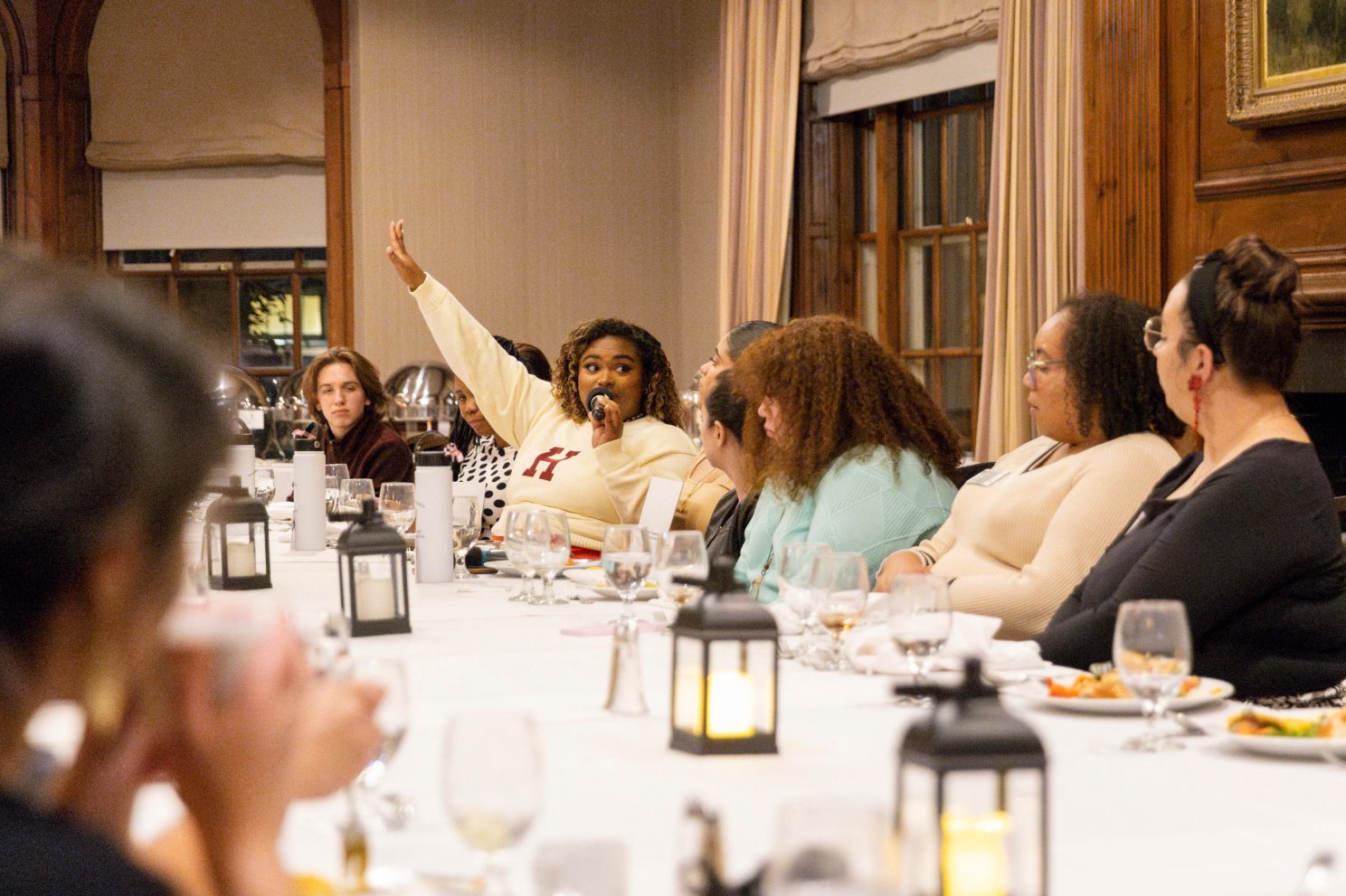‘Celebrating Bigger Bodies’ tackles fat phobia permeating college campuses

Samyra Miller ’21 speaks during “Celebrating Bigger Bodies and Deconstructing Anti-Fat Bias.”
Niles Singer/Harvard Staff Photographer
Isabela Gonzalez-Lawand ’26 is determined to make space for bigger bodies and push campus conversations that affect students of all sizes. Last week, the government concentrator facilitated a discussion with author Kate Manne and plus-sized advocate and model Samyra Miller ’21 as part of the Harvard Foundation for Intercultural and Race Relations’ “Celebrating Bigger Bodies and Deconstruction Anti-Fat Bias.”
“Body positivity is not the answer to all of this. It had its moment,” Manne, an associate professor of philosophy at Cornell University, said. “At the center of this movement, we should be celebrating and amplifying voices that belong to bodies that are more marginalized.”
The author of “Unshrinking: How to Fight Fatphobia” said the body positivity movement forced people to be “relentlessly upbeat” about their bodies — a point Miller strongly agreed with.
The New Orleans native shared that she grew up immersed in diet culture, and often experienced learning spaces that were not made for bigger bodies. She has amassed more than 2 million followers on social media chronicling the challenges of fatphobia, especially in the fashion industry where many clothing brands claim to be for “all women and real bodies,” but fail to carry plus sizes or feature bigger bodies in their advertising.
“A big misconception when people consume my content is that they think that I’m just going at every single brand. I’m talking to the brands that say they are size inclusive, that say they make clothes for every body and everyone. Because if you truly do that, you shouldn’t stop at an XXL,” she said.
Miller questioned how students can feel safe to ask for help when facing fatphobia on campus, responding to a comment by one student in the audience who shared how prevalent the term “big back” was thrown around by her classmates. The expression became popular on TikTok as a comment on or to poke fun at others or oneself for eating “too much.”
“Size inclusivity really needs to be a material commitment. So many classrooms don’t have chairs and desks that fit larger bodies or even bodies that are tall, broad, or bodies that are disabled,” Manne noted. “We need to seriously look at whether each and every classroom has seating arrangements that are suitable for a large range of bodies. Until we do that, we’re really not even taking the first steps towards a genuinely inclusive material space for learning.”
“Celebrating Bigger Bodies” was part of the Cultivating Curiosity Series co-hosted by the Harvard Foundation and the Harvard College Equity, Diversity, and Inclusion Team, with support from the Intellectual Vitality Initiative. The series touches on topics that are relevant to today’s campus climate and calls on students to engage in learning and dialogue surrounding issues on identity, positionality, and allyship.




